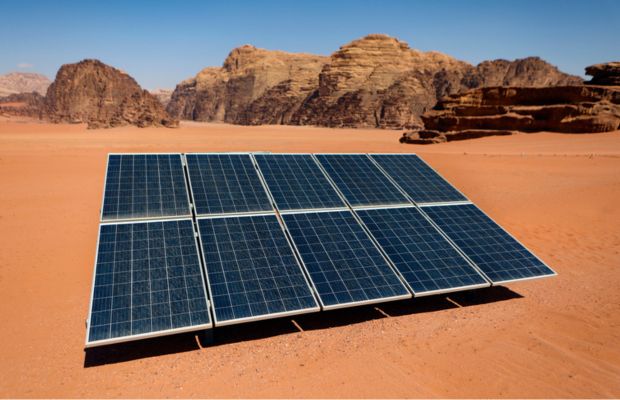In a step towards fulfilling the country’s 2020-2030 Energy Strategy, Jordan has an ambitious plan to build a major solar panel factory, in the south-east Amman airport area. The factory will cost around 100 million Jordanian dinars (around 141 million U.S. dollars) and is expected to create more than 500 jobs.
The factory, which will be funded by Jordanian investment, will cover an area of 130 dunams (13 hectares) and is set to start production by the end of this year, according to a statement by the Jordanian government. The plan was announced at the ‘A Year on Modernisation’ forum, held at the Dead Sea area of Jordan, recently. Over 600 officials and experts from various sectors participated in the forum.
The activities comprise sessions focusing on specialised administrative and economic sectors, showing the progress of work in the two programmes for the visions of economic and administrative modernisation.
As per reports, Jordan has performed exceptionally well in renewable sector. Jordan achieved a remarkable breakthrough in the period 2015-2020 by raising renewable energy’s contribution from 2 per cent to 11 per cent.
It may be noted that the country has released its 2020-2030 Energy Strategy in the year 2020. The Strategy aims at diversifying energy forms, increasing the contribution of indigenous energy sources, improving energy efficiency in all sectors and reducing the impact of energy costs on the national economy, making Jordan a regional hub for all forms of energy exchange.
The Strategy also calls for Jordan to be self-reliant, to reduce energy costs for local consumers, to diversify and increase reliance on local energy sources, and to reduce energy imports. One of the primary objectives of the strategy is to improve energy efficiency by strengthening national energy efficiency legislation and implementation of plans.
The strategy targets to increase the proportion of electricity generated from local sources from 15% in 2019 to 48.5% in 2030.
The strategy plans to increase renewable energy’s share of the entire energy mix from 11 per cent in 2020 to 14 per cent by 2030. This coincides with the government’s priorities and contribute to the country’s goals of sustainable growth, creating an attractive investment environment, reducing poverty and unemployment, and establishing effective social protection systems.


